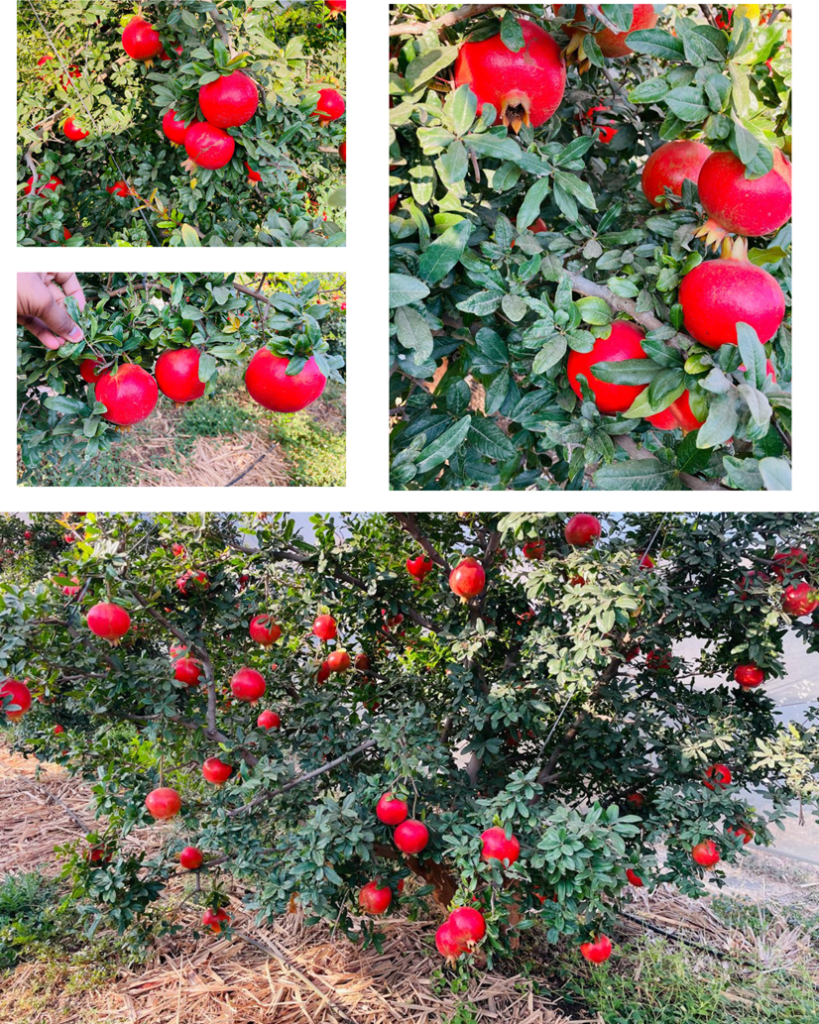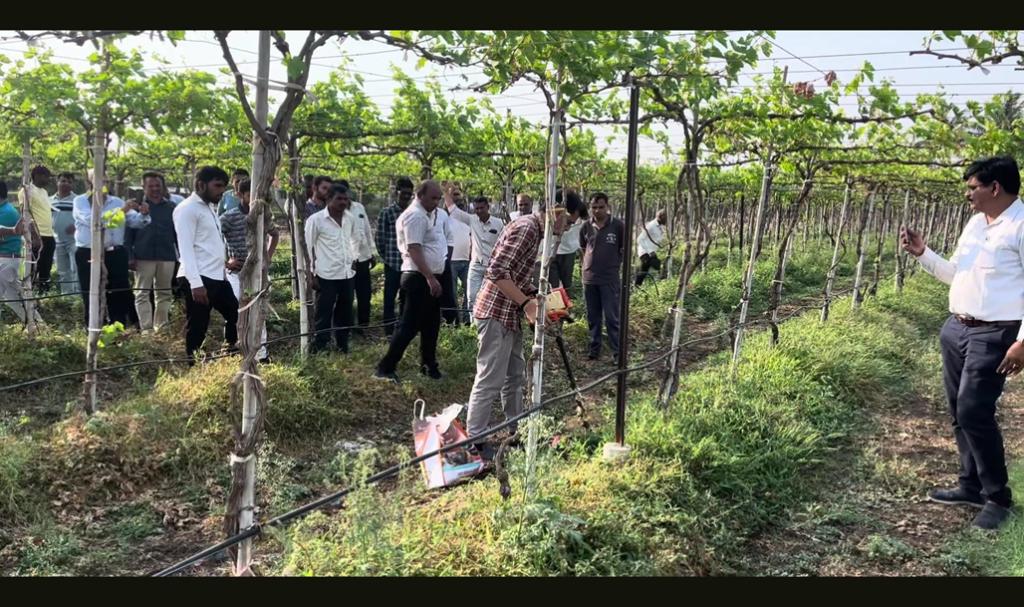The Power of Soil Testing and Organic Farming: Building a Sustainable Future
Introduction
In the quest for sustainable agriculture, soil testing and organic farming stand out as essential practices. Soil testing provides crucial insights into the health of our farmland, while organic farming offers a holistic approach to cultivating crops that benefits both the environment and human health. This blog explores the importance of these practices, their interconnection, and how they can pave the way for a sustainable future in agriculture.
The Importance of Soil Testing
Soil testing is a vital process that measures the chemical composition and physical properties of soil. It helps farmers identify nutrient deficiencies and pH levels, enabling them to improve crop yields, save money, and protect the environment. By understanding the specific needs of their soil, farmers can apply the right nutrients and amendments, ensuring optimal growing conditions for their crops.
Why Soil Testing Matters
- Identifies Nutrient Deficiencies: Soil testing reveals which nutrients are lacking, allowing farmers to apply the right fertilizers.
- Optimizes pH Levels: Understanding the soil’s pH helps farmers adjust it to the optimal range for their crops, enhancing nutrient availability.
- Enhances Crop Yields: Addressing soil deficiencies leads to higher crop yields.
- Saves Money: Precise nutrient application reduces the need for excess fertilizers, saving costs.
- Protects the Environment: Proper nutrient management prevents runoff and pollution, safeguarding water sources and ecosystems.

What is Organic Farming?
Organic farming is a method of agriculture that relies on natural resources and processes to produce food. It avoids synthetic chemicals and GMOs, focusing on sustainable practices that enhance soil health and biodiversity. Organic farming is not just about producing food; it is about creating a harmonious relationship between agriculture and the environment.
The Importance of Organic Farming
Organic farming is a cornerstone of environmental sustainability. It promotes soil health through practices like composting and crop rotation, which build healthy soil with higher organic matter. This improves water retention and fertility, making the soil more resilient to erosion and drought. By avoiding synthetic pesticides and fertilizers, organic farming prevents harmful chemicals from entering water sources, protecting wildlife and ecosystems. It also encourages biodiversity conservation by supporting a wide range of plant species, beneficial insects, and wildlife. Additionally, healthy organic soil can store more carbon from the atmosphere, contributing to the mitigation of climate change.

Key Environmental Benefits
- Soil Health: Organic practices like composting and crop rotation build healthy soil with higher organic matter, improving water retention and fertility.
- Reduced Chemical Pollution: Avoiding synthetic pesticides and fertilizers prevents harmful chemicals from entering water sources and harming wildlife.
- Biodiversity Conservation: Organic farming encourages diverse plant species, supporting a wider range of beneficial insects and wildlife.
- Carbon Sequestration: Healthy organic soil can store more carbon from the atmosphere, mitigating climate change.
Health Benefits
Organic produce is known for its lower levels of pesticide residues, which can potentially reduce health risks for consumers. Some studies suggest that organic food may contain higher levels of certain vitamins and minerals, offering potential nutritional benefits.
Economic Benefits
The growing market demand for organic products presents significant economic opportunities for farmers. Consumers are increasingly seeking organic products, creating a lucrative market for organic farmers. Moreover, organic farming can reduce input costs by relying on natural methods like composting, which can be more cost-effective than chemical-intensive farming.
Social Benefits
Organic farming supports rural communities by providing sustainable income sources. It often involves local knowledge and collaboration among farmers, fostering community engagement and sustainable livelihoods.
Benefits of Soil Testing in Organic Farming
Soil testing is particularly beneficial in organic farming. By knowing the exact availability of nutrients in the soil, farmers can manage nutrient uptake in crop plants more effectively. This precision helps optimize crop growth while minimizing the need for external inputs, aligning perfectly with organic principles.
How Soil Testing Enhances Organic Farming
- Precision Nutrient Management: Soil testing allows farmers to apply the right nutrients, ensuring optimal crop growth.
- Minimizes External Inputs: By understanding soil health, farmers can reduce the need for synthetic fertilizers.
- Enhances Crop Quality: Proper nutrient management leads to healthier crops with potentially higher nutritional value.
How to Conduct Soil Testing: A Step-by-Step Guide
Conducting soil testing is a straightforward process that provides valuable insights. Here’s a step-by-step guide:
Step 1: Sample Collection
Take a soil sample from 1 to 1.5 acres of farmland. Divide the area into a zigzag pattern and dig six holes, each 5-6 inches (13-17 cm) deep.
Step 2: Mixing Samples
Collect soil from six different spots within the 1-1.5 acres and mix the soil thoroughly.
Step 3: Dividing Samples
Divide the mixed soil into four portions.
Step 4: Sending for Evaluation
Take two portions and send them to a reputable laboratory for evaluation.


Soil Microbes: The Unsung Heroes of Organic Farming
Soil microbes, including bacteria, fungi, and beneficial nematodes, play a crucial role in organic farming. They contribute to soil health through processes like decomposition, nitrogen fixation, and disease suppression. These microorganisms break down organic matter, making nutrients available to plants and enhancing soil structure.
Enhancing Microbial Activity Naturally
To enhance microbial activity, organic farmers can use biofertilizers, composting, and cover cropping. Biofertilizers introduce beneficial microbes into the soil, while composting provides organic matter that supports microbial growth. Cover cropping with legumes, for example, can fix nitrogen in the soil, further enriching its health.

Key Microbial Contributions
- Decomposition: Microbes break down organic matter, making nutrients available to plants.
- Nitrogen Fixation: Certain bacteria convert atmospheric nitrogen into a form plants can use.
- Disease Suppression: Beneficial microbes can help suppress soil-borne diseases.
Nutrient Cycling and Plant Growth
Nutrient cycling is the process by which nutrients move through the soil, plants, and back to the soil. This cycle is essential for plant growth, as it ensures a continuous supply of nutrients. Soil testing analysis can help stabilize nutrient cycling by identifying deficiencies and imbalances. By applying the right amendments based on soil test results, farmers can maintain optimal nutrient levels, promoting healthy plant growth and high yields.
Stabilizing Nutrient Cycling
- Identify Deficiencies: Soil testing reveals which nutrients are lacking.
- Apply Amendments: Based on test results, farmers can apply the right nutrients to stabilize the cycle.
- Promote Plant Growth: Balanced nutrient levels support healthy plant growth and high yields.
Organic Farming as an Alternative for a Sustainable Future
Organic farming offers a sustainable alternative to conventional agriculture. By avoiding synthetic inputs and focusing on biodiversity, soil conservation, and organic practices like composting, crop rotation, and green manure, organic farming can create a resilient and healthy ecosystem. The economic benefits of organic farming, combined with its positive impact on human health and the environment, make it a compelling choice for a sustainable future.
Key Practices for Sustainable Organic Farming
- Avoid Synthetic Inputs: Focus on natural methods to enhance soil health.
- Promote Biodiversity: Encourage diverse plant species to support a wide range of beneficial insects and wildlife.
- Soil Conservation: Use practices like composting and crop rotation to maintain soil health.
- Economic Viability: Leverage the growing market demand for organic products to create sustainable income sources.
Conclusion
Soil testing and organic farming are powerful tools in the pursuit of sustainable agriculture. By understanding the health of our soil and adopting organic practices, we can create a harmonious and productive agricultural system. These practices not only benefit the environment and human health but also offer economic and social advantages. As we look to the future, embracing soil testing and organic farming can pave the way for a more sustainable and prosperous world.
